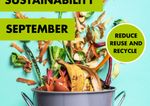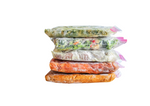Not so sweet on the sweet stuff
by Anne Finch, Accredited Practising Dietitian for LiveLighter
- October 29, 2015
- Leave a comment

Sugar sure is having its time in the spotlight. What’s the big deal? And what does it mean for you?
Sugar causes weight gain
But so does pretty much every food and drink. Sugar is just one of the things that contributes energy (measured in kilojoules or calories) to our diet. When we eat and drink more energy than we need, our body stores it as fat and we gain weight.
Sugar isn’t unique in being able to cause weight gain, so why is it public enemy number one when it comes to being healthy? Here are the main reasons:
1. It has no nutritional value apart from energy
Sugar, as in, the sugar you buy in a bag, isn’t bringing much to the party nutritionally apart from kilojoules. Most Australians (around two-thirds) are overweight or obese, and probably need to eat less kilojoules, not more.
But let’s be honest; most people aren’t shovelling in sugar straight from the sugar bowl. They’re having it in food and drinks that are easy to overeat, because they don’t fill you up.
2. Sugar is added to a lot of foods
It springs up in unlikely places and it’s hard to tell how much you’re having. Sometimes it’s obvious when a product is high in sugar (lollies, soft drink, cake), but sometimes it’s hard to know just by tasting – think some breakfast cereals and BBQ sauce. More and more of the foods we eat are processed, which gives more opportunity for food manufacturers to add sugar. Why would they want to do that, you ask? Well, it’s cheap, tasty and makes foods moister, crunchier and longer lasting. Those are great ways to sell more!
3. It’s not satisfying
Our body is usually pretty good at telling us when we’ve had enough to eat (whether we listen to that message or not is a whole other story). When we eat sugar though, the signals that our body sends to our brains are not very strong compared to when we eat something with a lot of protein or fibre. Think about how full you would feel after eating each of these foods:
- Two boiled eggs (high protein)
- Small bowl of porridge (high fibre)
- Small handful of jelly babies (high sugar)
They all contain about the same number of kilojoules, and I know which one would send me back to the fridge the fastest (hint: rhymes with smelly rabies).
What about ‘natural’ sugar? That’s better for you, right?
The short answer is that your body treats ingredients like honey, brown sugar, rice malt syrup, concentrated fruit juice and maple syrup in pretty much the same way as refined white sugar. Using less of a stronger flavoured sweetener, like honey or maple syrup can therefore be a good option. Using spices like cinnamon and vanilla make things seem sweeter without adding extra sugar.
Putting it all together
Here’s what we know: sugar is in a lot of the foods we eat, it doesn’t fill us up or give us any essential nutrients, and it contributes to weight gain. So should we hop on the bandwagon and quit sugar?
Well, if you’re eating it straight out of the bag, I’d suggest stopping that. Instead of focussing on a single ingredient, I’d suggest looking more broadly at the foods you eat. If you focus on eating more whole foods like fruit, vegetables, lean meat, reduced fat dairy and wholegrain cereals and less highly processed foods you’ll likely have less room for really sugary foods.
If you make your own cakes and sweet treats you’ll probably have them less often and enjoy them more, because you know how much effort – and sugar – goes into them. Putting an all-out ban on a food often just makes you want it more. So keep your treats small and infrequent (it’s not a treat if it’s every day!), and savour every last bite.
So, in a nutshell…
- Sugary foods are often high in kilojoules and don’t fill you up
- Processed foods are often high in added sugar
- Focus on whole foods and home cooked
- Banning foods can lead to bingeing, so enjoy your treats mindfully







